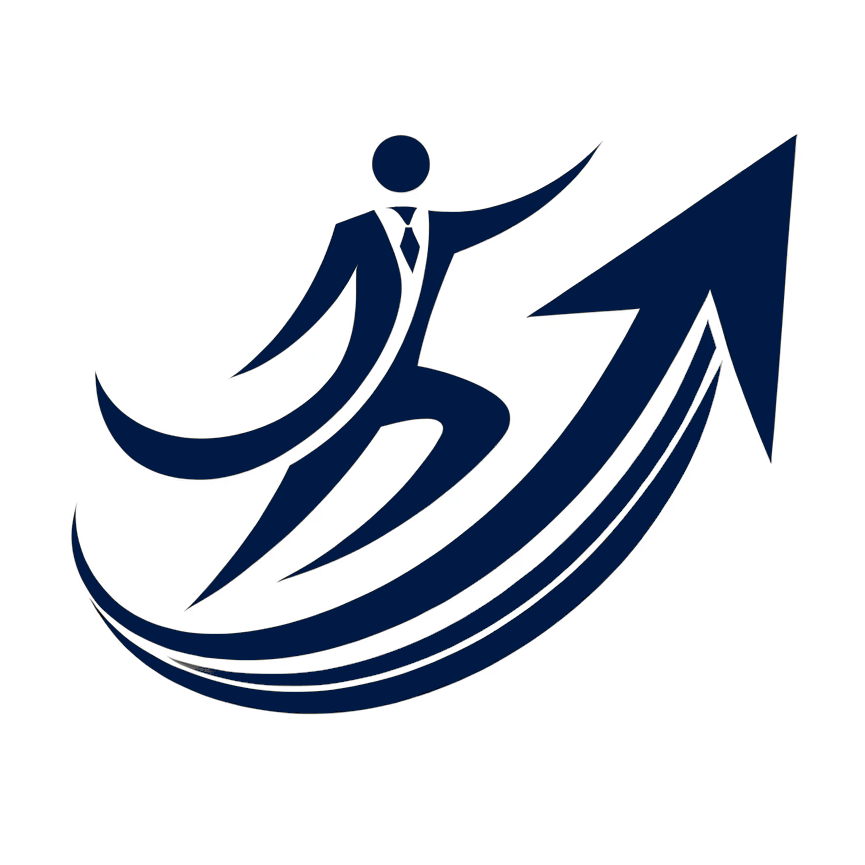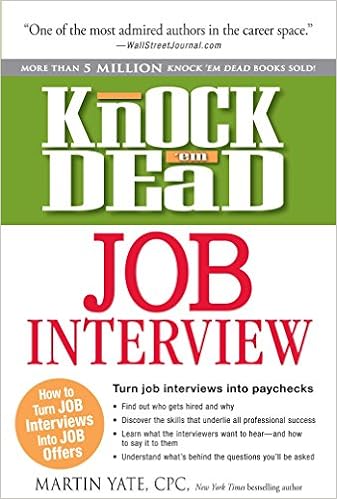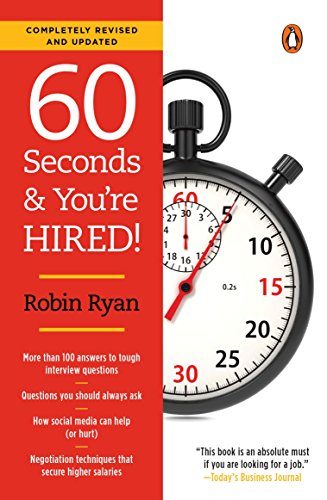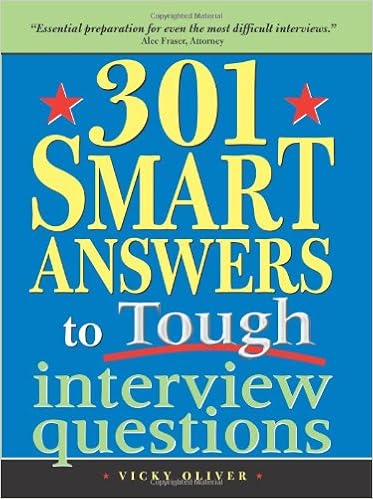We may earn a commission if you click on a product link and make a purchase at no additional cost to you. For more information, please see our disclosure policy.
Last Updated on March 30, 2025
Getting invited for a
Our AI Job Interview Coach is designed to help you train and excel in any job interview from the comfort of your home.
Accept Your Anxiety
Anxiety about a
Instead of trying to avoid or suppress the anxiety, embrace it and use it to your advantage. The stress that develops as the interview arrives can help you prepare mentally. Your preparation can, in turn, reduce the amount of anxiety that you experience. The fact that you are having anxiety in the first place means that you care about the interview so use this anxiety to prepare and make it more likely that you will do well.
Research shows that embracing stress and anxiety can be better than attempting to reduce it. Once you accept and embrace the anxiety, you can face the challenge with a new perspective. Feeling anxious can help us to engage in the things that we truly care about. This includes the job interview that you are having stress and anxiety about.
Feeling anxious before a job interview is common, but you can manage it! Learn practical tips to stay calm, confident, and ready to impress during your next interview. #JobSearch #InterviewTips #CareerAdvice #JobInterview #InterviewAnxiety #CareerSuccessClick To TweetCollect Thoughts
The day before your interview, you can try to collect your thoughts that are racing through your mind as a result of the anxiety. This can help you put the thoughts into perspective and remove them from your mind.
After you have your thoughts down on paper, think about them individually. Ask yourself whether they are true or not. You can also try to think about each one logically to see if your fear is unfounded or irrational.
This can help you get these types of thoughts and questions away from your emotions and allow you to think about them in a concrete way. Then, if these thoughts develop again before or during the interview, you will be able to address them in a similar way. This can allow you to regroup and refocus because you will not be distracted by unaddressed thoughts.
Explore Career.io, the only Al and human-powered platform where you can find everything you need. For any step of your job search or career growth. All in one place.
Mindfulness
Mindfulness can be a beneficial technique before your interview because it can help us increase our own awareness of the physical cues that develop when we experience anxiety. Then, we can calm the body and mind using different techniques that ground us. Meditation and mindfulness techniques can help us limit our anxious thoughts and develop coping mechanisms.
Sleep and Nutrition
Quality sleep and a healthy diet can go a long way to provide healthy fuel to our bodies. In addition, you can avoid sugar and caffeine that can put our system into overdrive and cause us to crash at a later time.
Some people also like to listen to music in order to distract and relax their body and mind. Music may help the recovery of the nervous system and can limit the psychological response to the interview. Different types of music work for different people. Some like to have energetic music to pump them up before an interview while others want soothing music to relax. Find something that works for you.
Radical Acceptance
Radical acceptance is the thought that you will be okay no matter what the outcome of the interview. There is a job that is perfect for you and this may or may not be it. Either way, there will be future opportunities that you can take advantage of.
In addition, no matter what happens after the interview, you should have a plan to celebrate. Do something enjoyable and relaxing after you finish the interview. Make plans to go to the movies or out to dinner. Doing something that brings joy and positivity after a stressful experience can provide something you can look forward to.
Having a friend or family member available after the interview can also help give you an objective perspective and someone to calm you down. It also gives you a person to speak with about the interview itself and how it went.
Cut through the networking noise and start building the powerful, real relationships needed to succeed in our digital world
Practice
Being prepared enough to practice the interview can go a long way. This will help you feel prepared. It may help to write down possible questions and prepare for them individually. You may also want to practice with a friend, or family member, or in a mirror to see how comfortable you are with the information.
You can also research the position so that you are knowledgeable about what you can look forward to during the interview. Just the simple fact that you are prepared can help to ease the anxiety going forward.
Picture Success
It is a good idea to imagine a successful interview. Visualize you doing a great job, asking and answering questions, and behaving professionally. This can help to improve your performance because it prepares the brain to act in a certain manner.
Interview the Interviewer
Sure, you are indeed going to be interviewed. However, a lot of people forget that the interviewee is also seeing if the employer is a good match for them. It can help to prepare questions that you want to know about the position or the organization. This can also help you research and prepare for the interview. Write down questions that you want to know the answer to that you can refer to at the end of the interview. This will also show the interviewer that you are prepared and care about the position.
Conclusion
So, you have an interview coming up? Well, do not worry! Instead, embrace the anxiety and prepare for the day. Then, you can go forward knowing that you did your best and be okay regardless of the outcome. This will help you relax and move forward to the interview and beyond. However, if you suffer from prolonged symptoms of anxiety or if your anxiety is disrupting your daily life or impacting your well-being, it may be a good idea to seek the help of a mental health professional. For more information on therapy, please check out this article.
Additional Resources
-
 Land Your Dream Job
Land Your Dream JobResume review, cover letters, and interview preparation. Learn about the critical mistakes you may be making in your resume and cover letters. Find out how to fix it and start getting job interviews.
We earn a commission if you click this link and make a purchase at no additional cost to you.
-
Explore & Get Started
Explore Career.io, the only Al and human-powered platform where you can find everything you need. For any step of your job search or career growth. All in one place.
Career.io is our trusted partner. If you subscribe to the platform, we may earn a commission (at no additional cost to you)
-
 $6.99Buy on Amazon
$6.99Buy on AmazonIf you don’t get invited to interview, you got screened out of the job. This book will keep you from getting screened out and consistently put you on the short list of candidates who get to interview in person.
We earn a commission if you click this link and make a purchase at no additional cost to you.
07/11/2025 02:01 am GMT -

$16.95$14.99Buy on AmazonIn Control the Conversation, the authors guide you in crafting a response to a question, not just an answer. A response should be multi-dimensional and include relevant and compelling information that goes beyond a mere answer.
We earn a commission if you click this link and make a purchase at no additional cost to you.
07/11/2025 02:00 am GMT -
 $4.99Buy on Amazon.com
$4.99Buy on Amazon.comDiscover How to Succeed in Interviewing Like a Pro! NEVER AGAIN Miss Out on Another Job Opportunity! FINALLY Get the Job You Deserve!
We earn a commission if you click this link and make a purchase at no additional cost to you.
07/10/2025 08:01 am GMT -

$14.95$8.84Buy from Amazon Buy from WalmartUsing his twenty-five years of experience, New York Times bestselling author Martin Yate has established a set of rules for job interviews that is sure to get you noticed.
We earn a commission if you click this link and make a purchase at no additional cost to you.
07/11/2025 04:00 am GMT -

$18.00$14.1060 Seconds & You're Hired! has already helped thousands of job seekers get their dream jobs by excelling in crucial interviews. America's top job search expert Robin Ryan draws on her 20 years as a career counselor.Learn MoreWe earn a commission if you click this link and make a purchase at no additional cost to you.
07/11/2025 02:07 am GMT -
 $8.99Buy from Amazon
$8.99Buy from AmazonAt last - behind the scenes insights from a hiring manager on how to interview for a job. Quickly learn what we expect to see and hear - and win that offer.
We earn a commission if you click this link and make a purchase at no additional cost to you.
07/10/2025 12:02 pm GMT -
 $3.99Buy from Amazon.com
$3.99Buy from Amazon.comAre you fed up with being unemployed or not having the job you deserve? This book is exactly what you’re looking for! Get great tips and best practices for the modern job seeker STRAIGHT FROM A RECRUITING INSIDER.
We earn a commission if you click this link and make a purchase at no additional cost to you.
07/11/2025 05:00 am GMT -

$22.99$13.65Buy on AmazonEvery manager and human resources department has seen it time and time again--candidates whom they viewed from across the table as promising individuals loaded with potential turning out to be disappointing and underwhelming employees.
We earn a commission if you click this link and make a purchase at no additional cost to you.
07/11/2025 03:01 am GMT -

$15.99$9.95Buy on Amazon.comIn today's job market, how you perform in an interview can make or break your hiring possibilities. If you want to stand ahead. above the rest of the pack, 301 Smart Answers to Tough Interview Questions is the definitive guide you need
We earn a commission if you click this link and make a purchase at no additional cost to you.
07/10/2025 12:04 pm GMT -

$14.95$14.04Buy on Amazon.comThis book helps you turn phone screen interviews into in-person interviews and job interviews into job offers. It turns you into a great interviewee.
We earn a commission if you click this link and make a purchase at no additional cost to you.
07/10/2025 08:01 am GMT -
 $20.00Buy from Amazon
$20.00Buy from AmazonThis book is all about how best to nail the online virtual interview for jobs. On perusing the book, you will be knowing how to prepare for online interview and how to deliver, for in the end, employer would like to hire you.
We earn a commission if you click this link and make a purchase at no additional cost to you.
07/11/2025 04:00 am GMT -
 $16.95Buy on Amazon Buy on Walmart.com
$16.95Buy on Amazon Buy on Walmart.comNo matter how good you look, how much research you've done, or how perfectly your qualifications match the job description, if you're not prepared with great answers to the toughest interview questions, you won't get the job.
We earn a commission if you click this link and make a purchase at no additional cost to you.
07/11/2025 04:00 am GMT -

$24.00$14.31Buy from Amazon Buy on Walmart.com101 Job Interview Questions You'll Never Fear Again provides the best strategies for dealing with everything from classic questions like "Tell me about yourself" and "What are your greatest weaknesses?"
We earn a commission if you click this link and make a purchase at no additional cost to you.
07/10/2025 10:01 am GMT
Related posts:
Joey Trebif is the pen name of Mark Fiebert, a former finance executive who hired and managed dozens of professionals during his 30-plus-year career. He now shares expert job search, resume, and career advice on CareerAlley.com.





